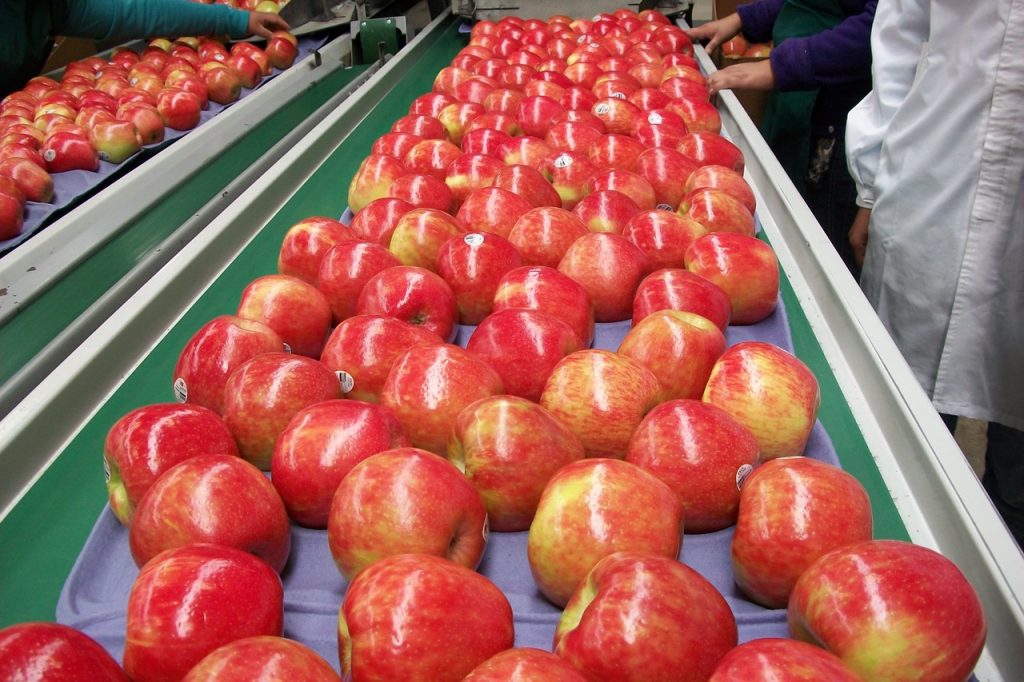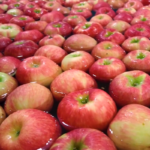Honeybear says 2020 "exceeding expectations" for apple imports

Consumer habits adopted during the pandemic look like they'll be around for the foreseeable future, according to Honeybear Brands - leading premium apple grower and importer in North America.
As apples are one of the "most dependable items in produce", according to the Minnesota-based company, this volatile time has been well managed by the packers and shippers across the apple supply chain.
“There were a few weeks where the grocery industry was trying to keep up with supply needs, but we are happy to see things normalizing," said vice president of sales and marketing Don Roper in a release this June.
Curious about how the apple market is performing and what pandemic-related consumer trends are emerging, we caught up with brand manager for HoneyBear Brands Kristi Harris.
When asked about how apples have been performing in retail in the past months, Harris told us that "in general, sales have been steady" and prices have been relatively flat.
For this season, "there's been some recent heat in Washington but in general, the expectation is for a good crop this year," she explained.
HoneyBear Brands has growing and packing operations in Washington State and the Midwest that are producing and the outlook for 2020 is "cautiously optimistic", she said.
Regarding imports from the Southern Hemisphere, Roper said that "2020 import sales season have exceeded expectations on many fronts.
"First and foremost, partnerships with Chilean farms have been strong. And the Honeycrisp apples have been record size and color and flavor has been especially good this season," he added.
On the company's production in South America, Harris said that "organic production in the next years in Chile will nearly triple as a significant number of our growing partners are transitioning to organic.
"HoneyBear will be the first to introduce a year-round organic Honeycrisp."
Shifts in U.S. retail for apples
Harris went on to tell FreshFruitPortal.com that the biggest change the industry has had to grapple with is the "planful" nature of shopping nowadays. When people go out to get produce, they are more intentional about the things they buy.
Catching attention for an impulse buy is more important than ever for marketing produce, Harris said. Fresh produce is often reliant on those last-second decisions in the grocery store.
In the pandemic, branding has seen the impact of consumers preferring online platforms and restaurant takeout to traditional supermarket runs.
"How and where we eat has been changed for the foreseeable future and likely forever," HoneyBear Brands predicted.
Limited grocery trips and stocking up have meant that things like apples and oranges have been popular as shoppers look for items with a longer shelf life and tend to go to the supermarket less frequently.
Online purchases for fresh fruits and veggies have seen an uptick of more than 39% relative to the same period last year, HoneyBear's Brands figures estimated.
As U.S. consumers are quickly adapting to this shift, even the aging population is becoming more comfortable with online shopping - explained Harris.
What produce looks like at the store
When it comes to how shoppers buy their produce, plastic packaging may be here to stay, at least for a while.
"I think we've definitely seen an increase in plastic packaging," said Harris.
Looking forward, she also thinks that "it makes sense to assume that consumers will gravitate toward packaged produce for a while, folks have converted from bulk items to packaged ones,".
This puts HoneyBear Brands in a tough spot because of its commitment to sustainability. But that doesn't mean that it has lost focus of environmentally friendly practices for the future, Harris emphasized.
"Before the pandemic, we were focused on fixing our sick planet and it's really important to keep our eye on the ball because that hasn't changed," she said.
Creative solutions for fresh fruit packaging both adds value for retail partners for HoneyBear and work toward the brand's mission to push sustainability into the future.
HoneyBear Brands' future strategies
HoneyBear also told us about how marketing trends have shifted during the pandemic.
"Marketing has kind of stopped touting 'it's all about me and here's how I can help you', and it's become 'how can we help the greater good' and we saw those messages from all of those savvy marketers out there," she said.
With this new conclusion that both produce retailers, marketers and consumers are all in this together, a new sense of unity has been created. This emphasis on community, said Harris, is critical to new marketing strategies.
To cater to consumers that online shop, retailers partnering with HoneyBear strive to make sure that their fruit is on the grocery list, said Harris.
From a messaging perspective, more health benefits will be highlighted as well as cleanliness along the supply chain - retailers will want to amplify those ideas during the next few months.







































